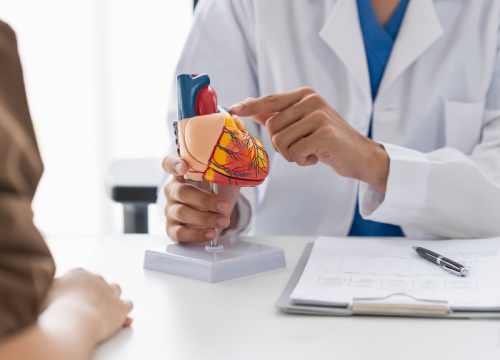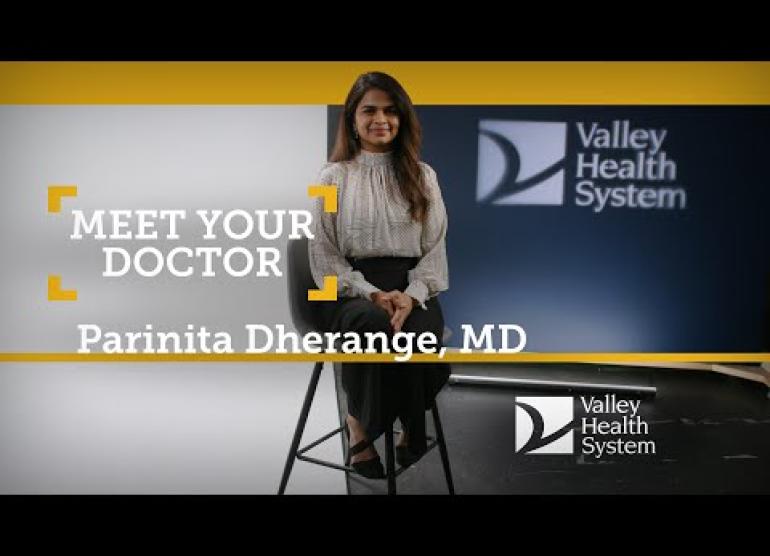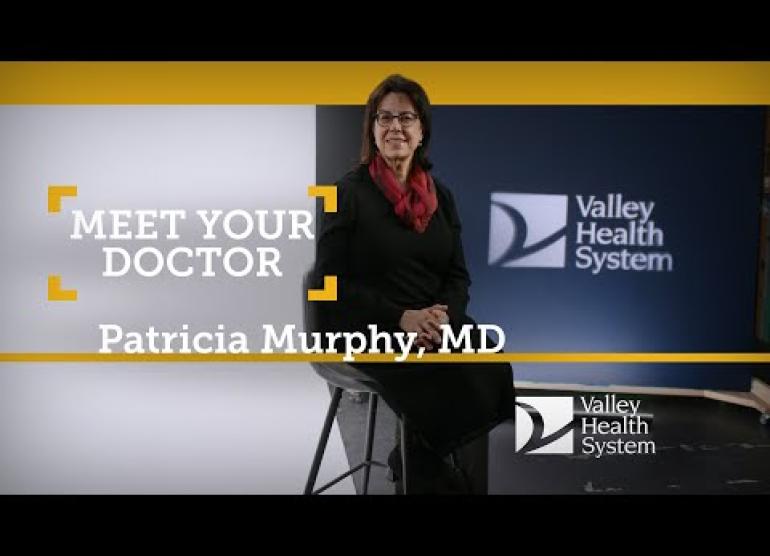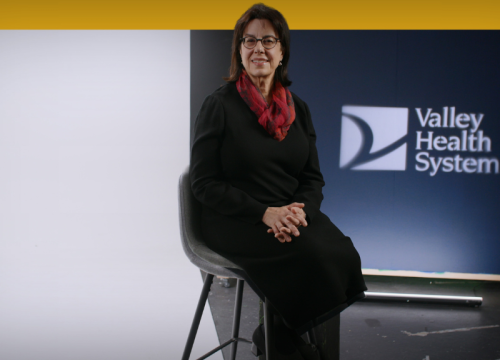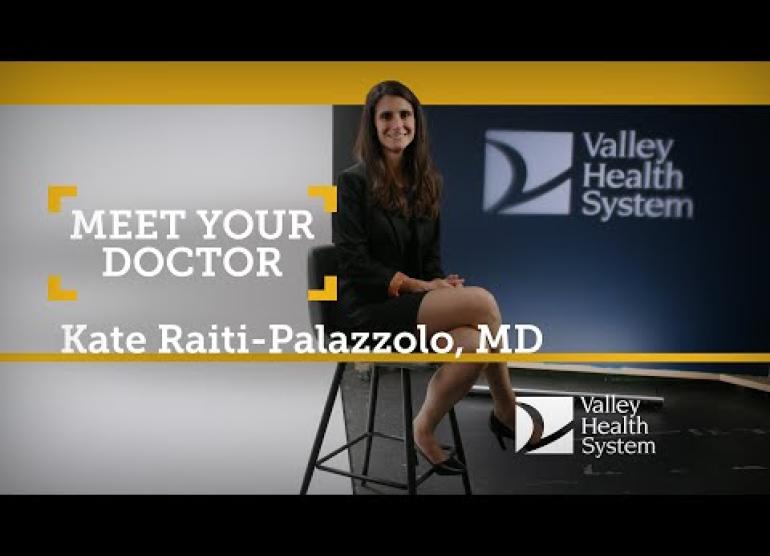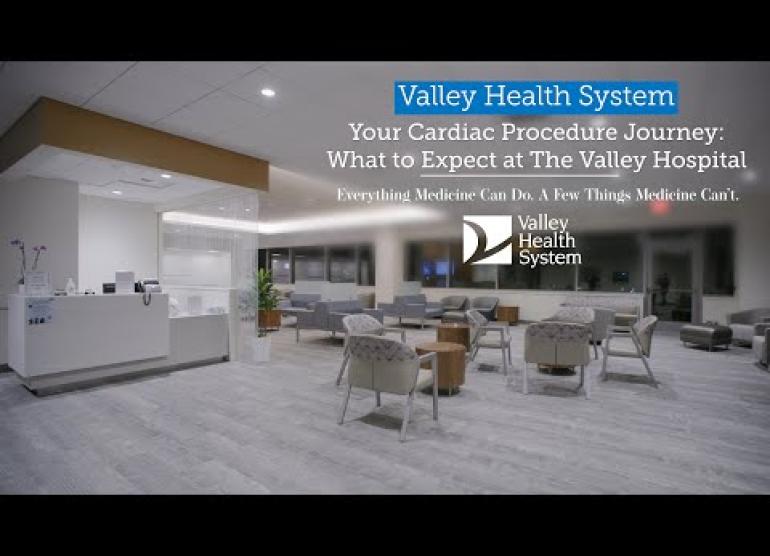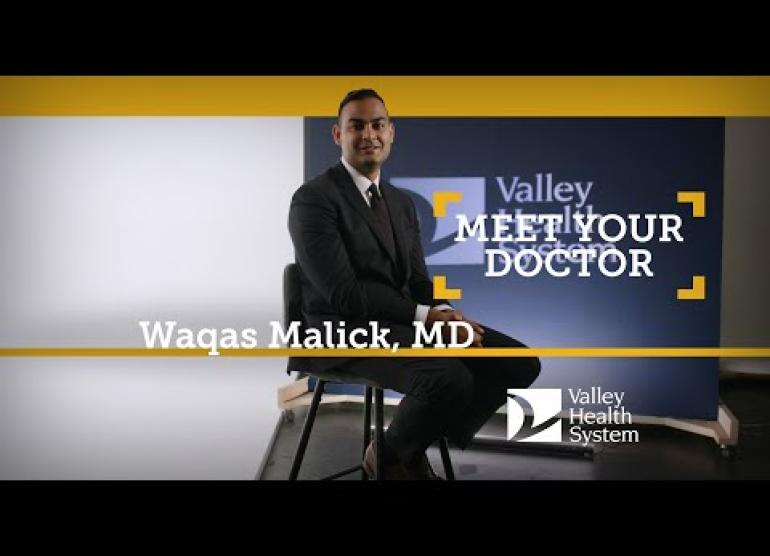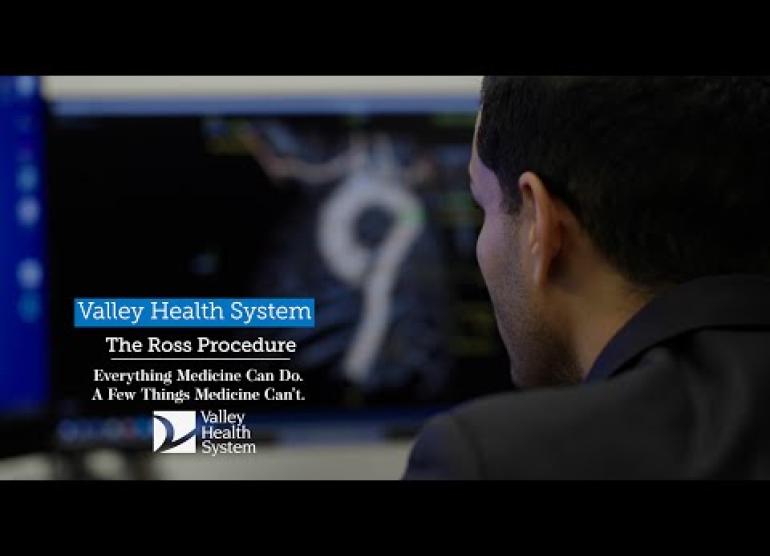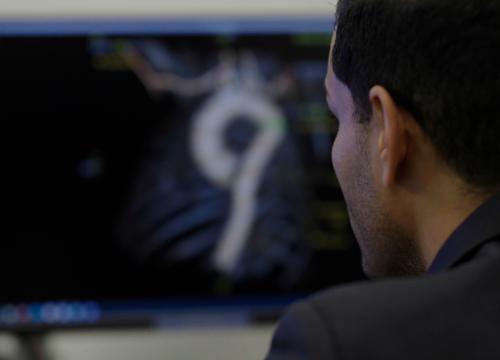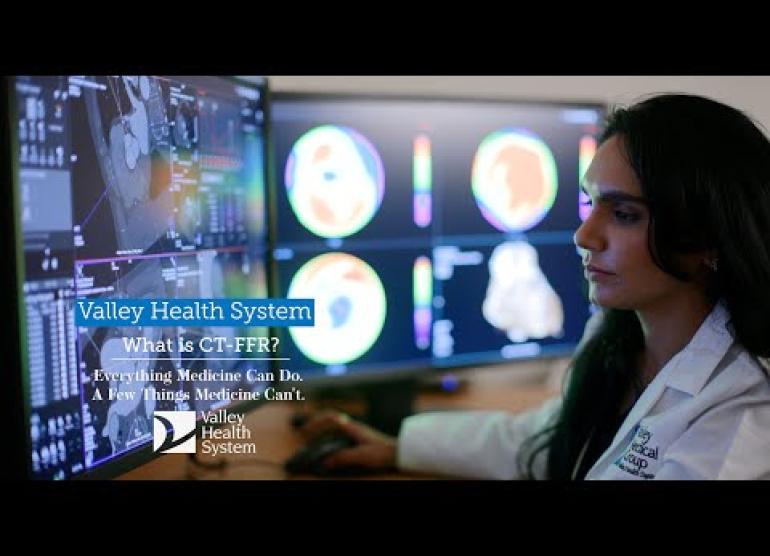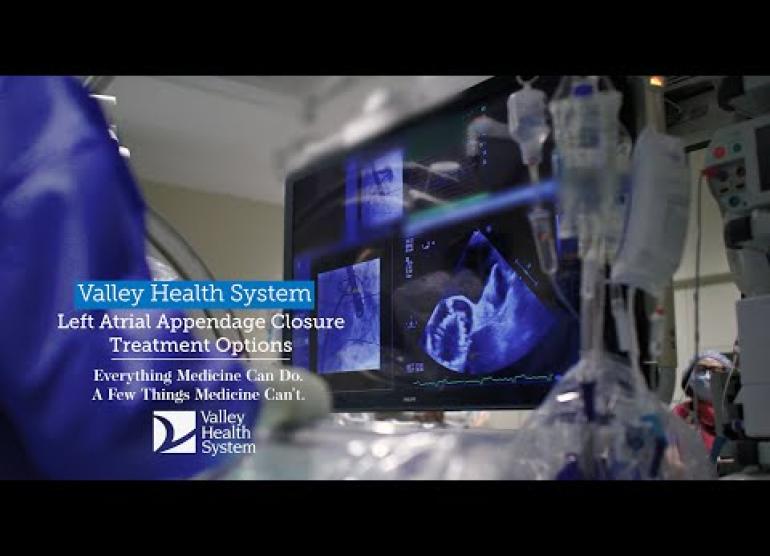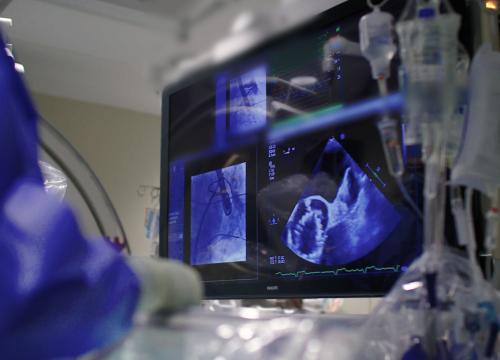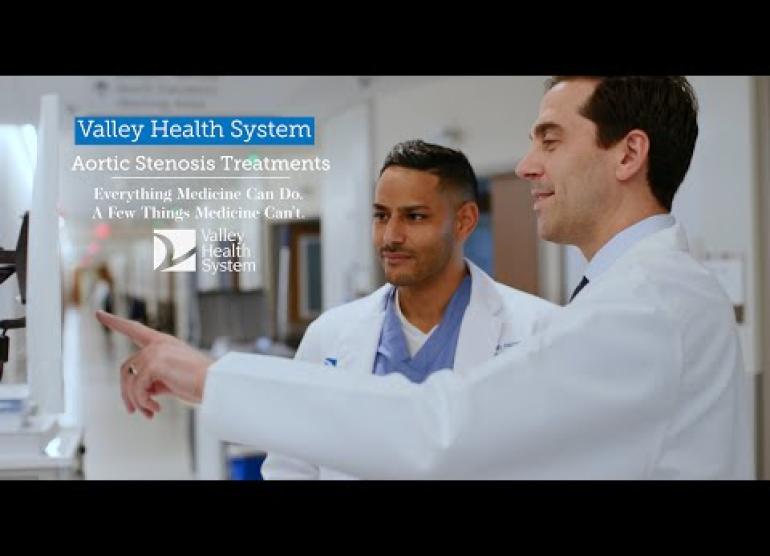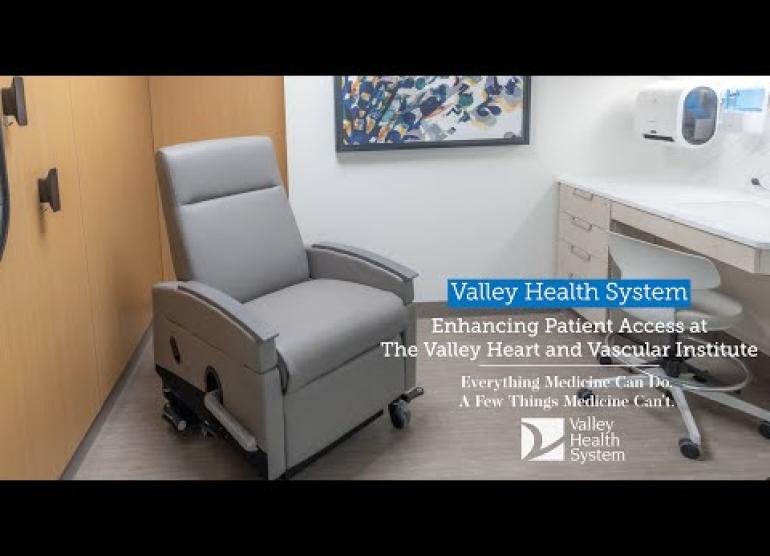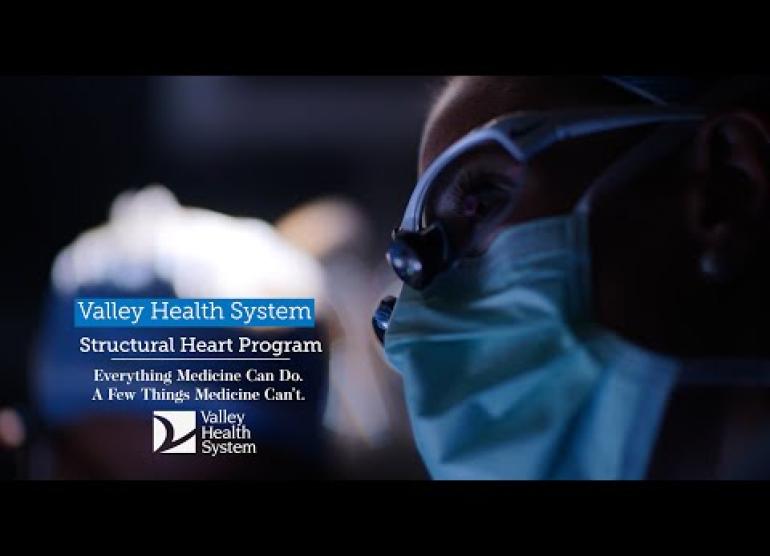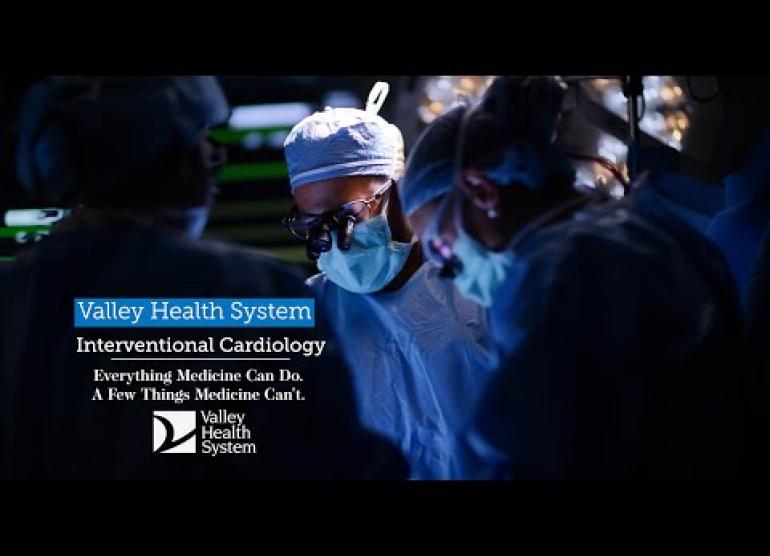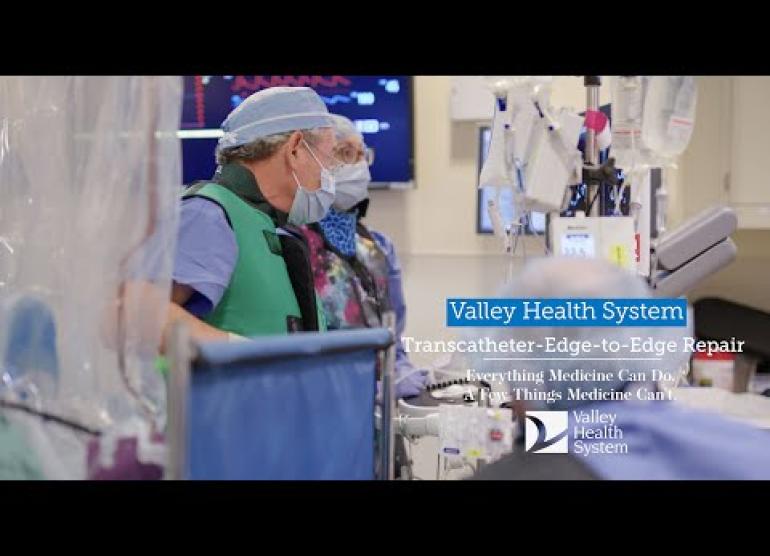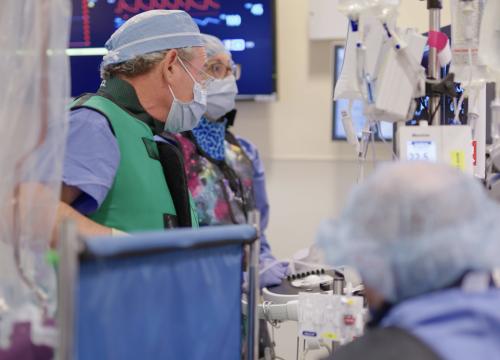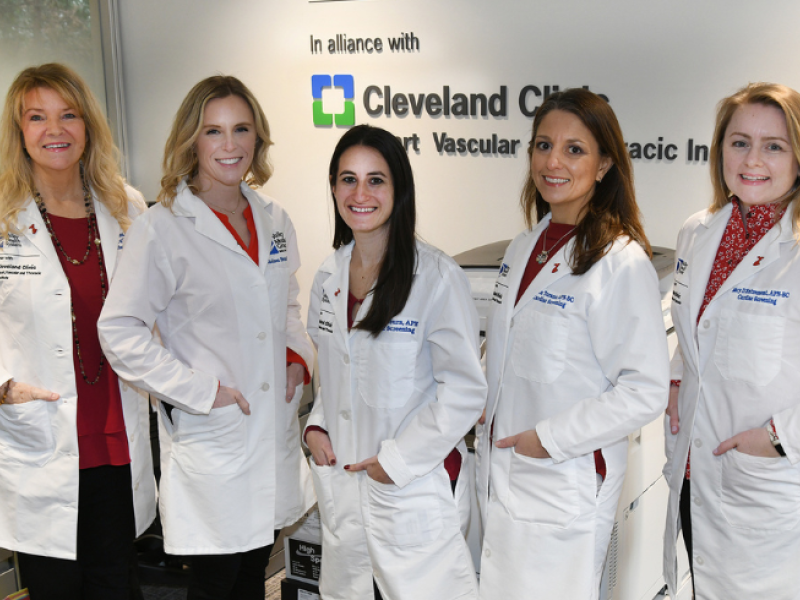
According to the Centers for Disease Control and Prevention (CDC), heart disease is the leading cause of death for women in the United States, causing 1 in every 5 female deaths in 2020. More startling, the CDC reports that despite efforts to increase awareness, the majority of women do not recognize that heart disease is an important health issue for them. In fact, at the American Heart Association Scientific Sessions, occurring in November 2022, it was reported that only 44 percent of women recognized that cardiovascular disease is their greatest health threat.
Featured in the photo (left to right) are Mary C. Collins, APN-BC, CCRN,HN-BC; Chelsea Benell, APN-BC, CCRN; Arielle Coburn, APN-BC; Lillian Turano, APN-BC; and Mary E. D'Entremont, APN-BC.
What can you do to take control of your cardiovascular health? At Valley, our team believes that the key to preventing cardiovascular disease starts with proper screening. To help women – and men – identify their risk for developing cardiovascular disease, and take action to reduce their risk, our team offers a Cardiac Screening Program. It is important to note that The American Heart Association recommends both women and men begin regular heart screenings starting at 20 years old.
Valley’s Cardiac Screening Program is a nurse practitioner-led program that begins with an in-depth review of a patient’s personal risks for developing cardiovascular disease. Patients will undergo a physical exam, which includes an evaluation of blood pressure and heart rhythm, auscultation – listening to the sounds of the heart – to detect heart murmurs, and biometric screenings for body mass index and waist circumference.
Beyond traditional risk factors, such as family history, hyperlipidemia, hypertension, and smoking, the nurse practitioner will also explore, gender-specific risk factors that include pregnancy history (preeclampsia, gestational diabetes, preterm labor), polycystic ovarian syndrome, and menopause history. Additionally, other disease specific risk factors are reviewed, which include cancer treatment history, presence of inflammatory diseases or auto immune diseases, stress level, and lifestyle.
The comprehensive risk assessment, findings of the physical exam, and biometric screenings, along with lab work analysis, are used to arrive at an ASCVD (Atherosclerotic Cardiovascular Disease) risk score. This score aids in determining a patient’s ten-year and lifetime risk of developing heart disease. Based on the results of the screening, patients may be referred for advanced diagnostic testing to further quantify their risk. Patients may also be referred to cardiac specialists and other specialty programs at The Valley Hospital.
If the need arises for a specialist, Valley Health System has a nationally recognized team of highly trained and skillful cardiologists, structural heart specialists, and cardiac surgeons to provide patients with state-of-the-art medical and surgical care.
In addition to screening, patients participating in Valley’s Cardiac Screening Program receive educational resources to maintain a heart healthy lifestyle that is personalized to their specific needs. Patients are also educated on the importance of nutrition, physical activity, and the utilization of holistic strategies to help manage daily life stressors.
As we celebrate American Heart Month this February, we empower you to take control of your cardiovascular health. Learn more about Valley’s Cardiac Screening Program by visiting www.ValleyHealth.com/HeartScreening and schedule a screening with our board-certified nurse practitioners.


